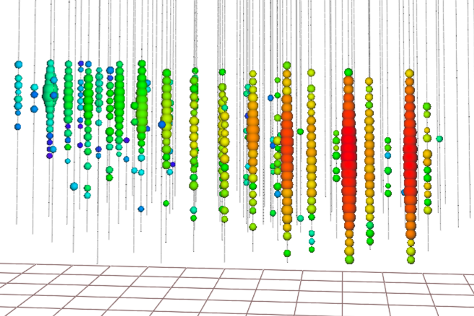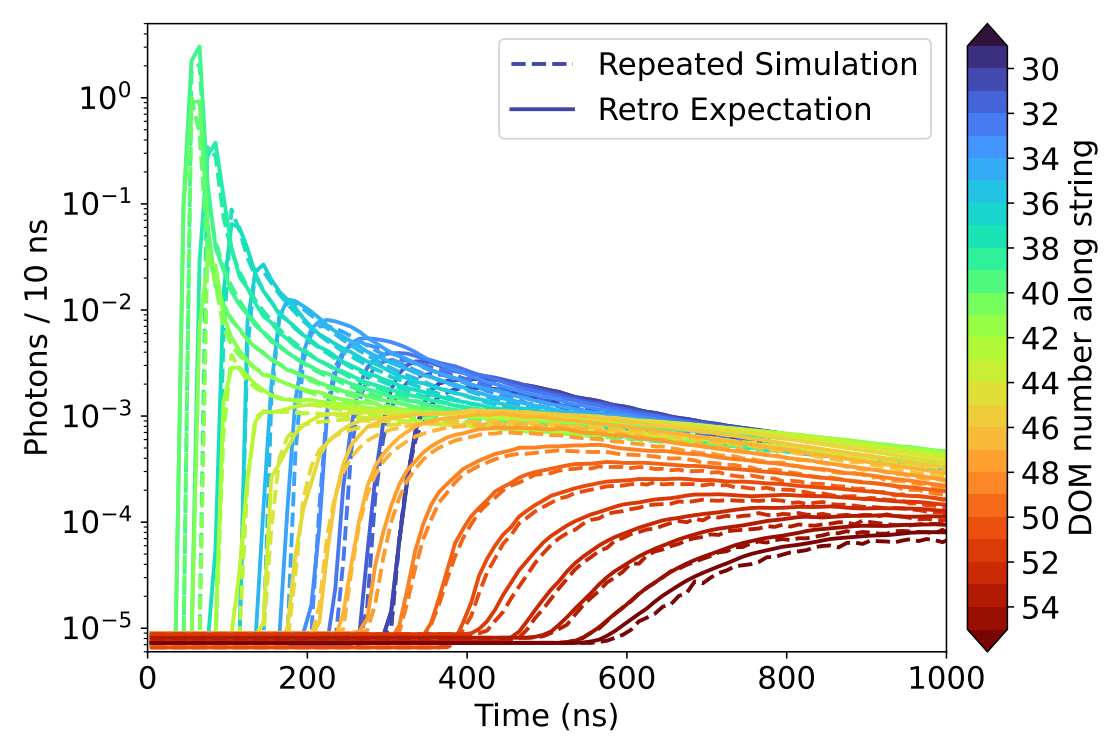Retro
A reverse table event reconstruction for IceCube



The so-called reconstruction of events, meaning the estimation of a neutrino interaction’s energy, place, and time in the detector, or direction of the incoming neutrino, is key to almost all physics analyses.
For low energy events, important for example for oscillation physics or dark matter searches, events contain much sparser information, as illustrated in the example event displayed above. The challenge to reconstruct low-energy events is not only this sparsity of pulse-level information, but also the irregular detector geometry, the varying optical properties of the deep glacial South Pole ice, and the sheer amount of events that need to be reconstructed (computational cost).
With retro, the reverse table reconstruction, we were able to improve on several frontiers, making reconstructions more accurate and faster at the same time.

Further Information
Collaborators: Justin Lanfranchi (PSU), Prof. Dr. Doug Cowen (PSU)
Paper available here: https://arxiv.org/abs/2203.02303)